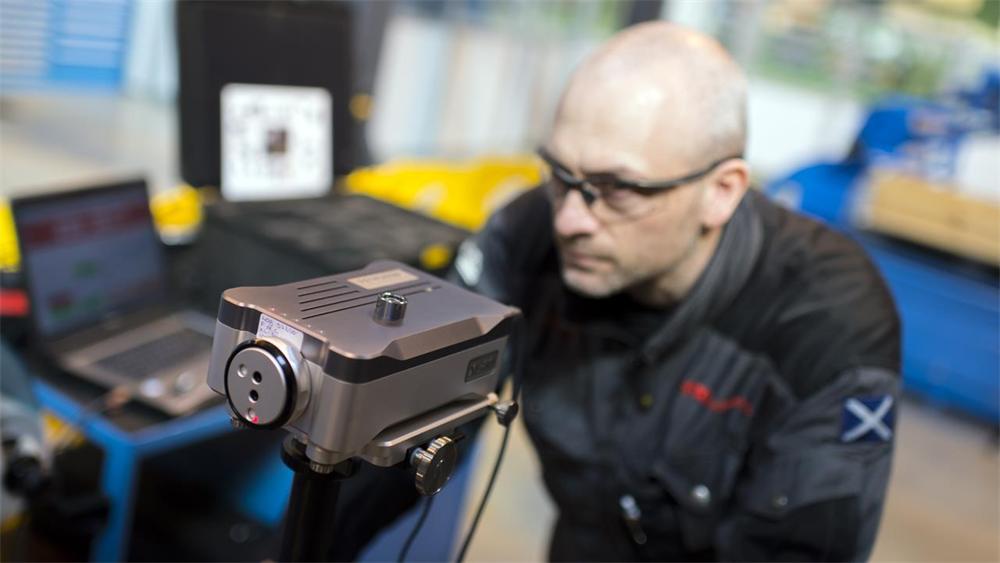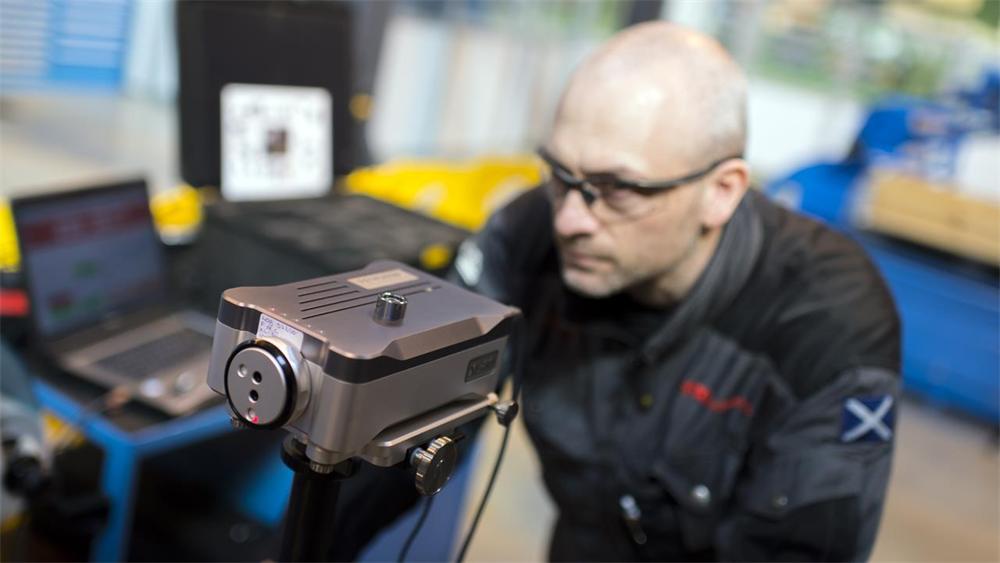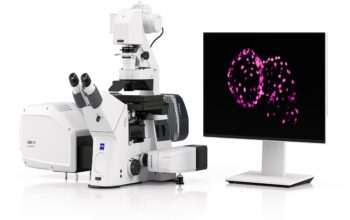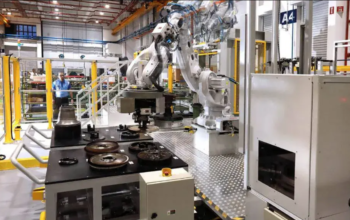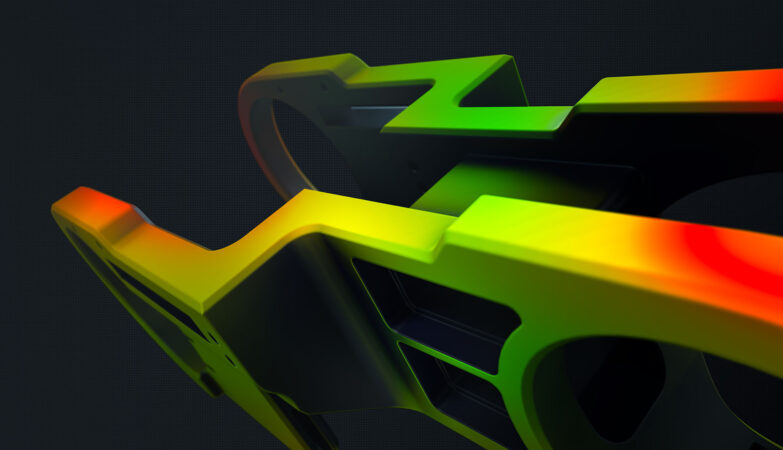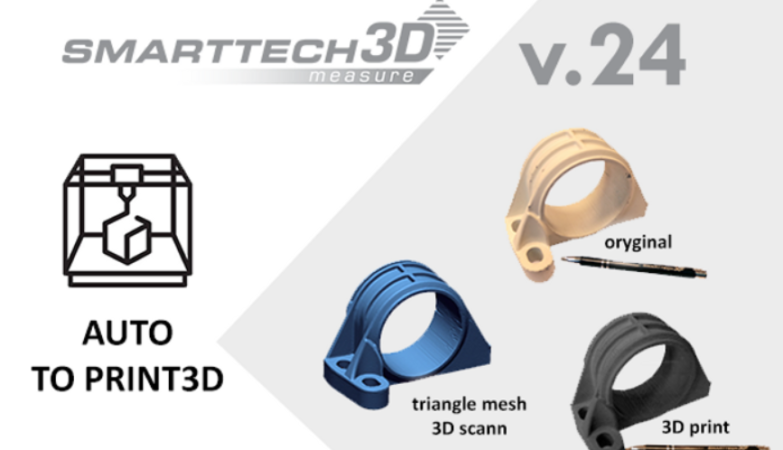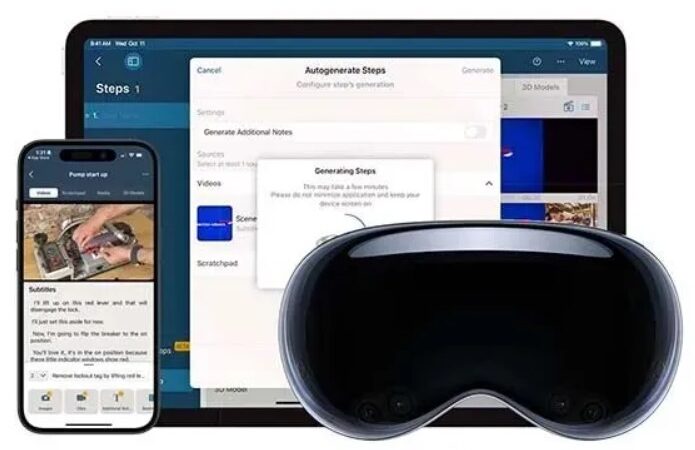For companies operating in the oil and gas equipment-manufacturing sector, recordkeeping and traceability are vital. As part of its company-wide quality protocol, FMC Technologies in Dunfermline, Scotland invests continually in a preventive maintenance programme. It employs Renishaw machine tool, probes and calibration products. They are used to check and verify the dimensional accuracy of its CNC machine tools.
FMC Technologies is a Houston, Texas-based developer and manufacturer of oil and gas Production Control Systems (PCSs).
A PCS consists of topside (surface) controls, power equipment, the Subsea Control Module (SCM), various sensors, and subsea electrical and hydraulic distribution equipment. The whole system is configurable according to conditions and requirements, and provides engineers on-board an oil or gas production platform with precise control of the well.
FMC Technologies has operations around the world, close to the major oil and gas industry epicenters. Its UK manufacturing operation occupies several buildings on and around the Pitreavie Business Park, Dunfermline, a short drive from Edinburgh, across the Forth Road Bridge.
Craig Simpson and Mike West are FMC Technologies maintenance technicians, with responsibility for the service and support of 20 CNC machine tools of various types, makes and ages. One of the company’s more recent investments: a £2.5 million, purpose-designed and built, SCM machining cell, consisting of two Okuma Space Centre MA-600HB CNC horizontal boring machines, loaded, controlled and managed by a Fastems automation system.
An SCM contains electronics, instrumentation, and hydraulics for safe and efficient operation of valves and chokes on the well-top ‘subsea tree’.
“There are four, main, machined parts in an SCM,” says Craig Simpson. They are “one high, and one low pressure adaptor plate; the manifold block itself, and a base plate. There are also a large number of small valves and electronic circuit boards that go into the whole assembly.”
Wells can be as far as 120 km from the production platform, in water up to 10,000 feet deep. Producing oil and gas safely and reliably under such conditions requires companies to make enormous investments. At the time when a SCM is installed on the seabed, it has to be reliable and safe for the production life of the well, hence lasting for decades. Hydraulically controlled valves must be free from defects and contamination. If a critical part malfunctions, the potential cost can easily run to tens-, or even hundreds-of-millions of dollars.
The Fastems automated cell are used to machine the stainless steel hydraulic manifold block, which is a critical control element in an SCM assembly. The 267 kg block is approximately 400 mm x 400 mm x 400 mm and is a complex of 350-drilled holes. The company will make more than 200 manifold blocks in 2014, when the cell is fully operational and capable of working ‘lights-out’. Should a tool break during the machining cycle, a Renishaw NC4 laser-based tool setting system will detect the tool absence and notify the Fastems system, which will reject the pallet and replace it with another.
Guiding principles
FMC Technologies is guided by what it calls the 5-absolutes of quality, the second of which emphasizes the importance of prevention, ‘not appraisal’ as the ‘cause’ of quality. “Quality control in the new cell is extremely thorough,” adds Mr. Simpson.
“The finished part is 100% inspected and has to be precise and flawless before it can be shipped to assemble”. For example, since each SCM manifold block takes up to 35-hours to machine, FMC Technologies engineers need to know that the Okuma machines in the Fastems cell are performing exactly as they should be. The process of scrapping a semi-finished or finished part due to an inaccuracy in the machine geometry would be very expensive.
“Traceability is everything,” says Mr. Simpson. “We have to be seen to be keeping precise records of our machining processes. We have to know if and when a machine is out of alignment, for any reason, so we can put it right. Then, when the problem is fixed, we have to be 100% sure that the machine is accurate, again.” To ensure that its 20 machines are accurate, the FMC Technologies’ maintenance department services them all, up to three times annually. All machines are checked with a Renishaw QC20-W wireless ballbar. The Okuma machines are serviced twice a year, at which point machine geometries are checked and rectified. Once a year the company also checks them with a Renishaw XL-80 laser measurement system and linearity is corrected. Every second year, at their annual service, all machines are leveled, aligned and checked with the XL-80 system.
“During the routine service we check each machine in the factory using the Renishaw ballbar,” says Mr. Simpson. “We keep those records so, should a finished or shipped part show a fault or a problem, we can prove whether the machine was accurate and aligned at the time the part was manufactured. In the event of an accuracy ‘issue’, we can also re-run the Renishaw ballbar, and compare the results with the records, to see how the dimensional accuracy of the machine has been affected.
“We use the Renishaw laser primarily to check linear dimensions,” he adds. “We have Renishaw RMP60 touch probes on most of our machines, including the Okumas, so we need to know the linear movements are exactly right”. FMC Technologies’ service contract with Renishaw includes 11 RMP60 touch probes with radio signal transmission, which are replaced annually or when damaged. FMC Technologies initially invested in the CNC Reporter software primarily for keeping production records. But, the company’s maintenance department has also found it invaluable and has recently invested in several, additional licenses.
“The Renishaw package is very useful for comparing data, and it’s not very expensive,” says Mike West. “So, we’ve bought another six seats, solely for maintenance operations. Having CNC Reporter means in the event of an accuracy issue, we don’t have to drag out the granite-square, parallel bars, etc.,” adds Mr. Simpson. “We don’t even have to remove the job from table. It saves a lot of time.” To help speed-up machine checking and calibration in the SCM cell, FMC Technologies has designed and built a custom calibration block, which it mounts on the Okuma machines during scheduled maintenance or when the machine is being checked.
“We’re currently introducing a new pallet size in the SCM cell, and some of the re-programming is being done manually, rather than off-line, using the Siemens NX CAE system. There’s increased potential for minor collisions. For example, we recently had a small knock. First, we ran the Renishaw ballbar to check the 3-axes were square. We also checked the Y-axis using a test bar and we compared the results to the data in CNC Reporter. We found that the zero position had been affected, so we re-taught the machine new zero positions using the test block.”
Craig Simpson and Mike West both agree that the Renishaw XL-80 laser measurement system, the QC20-W wireless ballbar and CNC Reporter software are very easy and intuitive to use. “We had one week of training with a Renishaw engineer,” says Mr. West. “If ever we have a problem or a question, we call the head office in Gloucestershire and we usually get an answer the first time. At the very least, someone calls us back that day.” FMC Technologies’ fifth ‘absolute of quality’ states that the goal of quality control is not customer satisfaction, but is in fact, customer success. The company claims that its Production Control Systems – including its SCMs are used on more than 1,000 subsea wells around the world, with an uptime rate of 99 – 100%!
Nevertheless, Craig Simpson says the maintenance programme in FMC Technologies in Dunfermline is evolving continually: “When I first started at the company, six years ago, our preventive maintenance was far less structured and much more time consuming. Now, we are very well organized and using the Renishaw equipment means we know much more about our machines and our processes. We’re always looking for ways to do things better. Our performance standard is zero defects, which is the third absolute in our quality philosophy. Nothing leaves this machine shop unless it is exactly right, but we couldn’t do it without Renishaw.”


